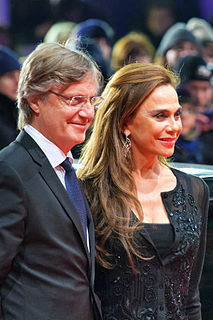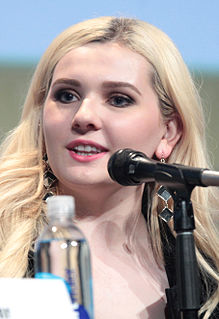A Quote by Lasse Hallstrom
I love involving actors at all levels - and they have to know that I want to hear their contributions, with dialogue, with story suggestions, with script changes, whatever.
Related Quotes
Do remember, though, that unless you're a playwright, the result [dialogue] isn't what you want; it's only an element of what you want. Actors embody and re-create the words of drama. In fiction, a tremendous amount of story and character may be given through the dialogue, but the story-world and its people have to be created by the storyteller. If there's nothing in it but disembodied voices, too much is missing.
When you try to be true to the script, changes occur. A script is there to show us a certain direction. But when you actually have the actors in and you start shooting the movie, you have the actor say a line and it doesn't sound right so you change it and make it different. It's the script that gives birth to these changes and the more you try to stay true to the script, the more that happens.
In terms of how I work with actors, having worked so heavily on the script I have a very clear idea of the characters; they are reasonably well illustrated in the script. If you cast it right, to a great degree you can hand it over to the actor and I just make suggestions. I'm not the kind of director who needs or wants to get into too much finessing. Ideally, when you hit the set, you have this conversation, like, 'eh, what did you think?' 'I don't know, what did you think?' 'Why don't we just try it again, make a few physical changes.'
The actors come in and they make characters their own and so Patrick and I have never been the kind to think that our script is the bible. We want to make sure that the story is told, that you stick to the story but if you have to make changes to the character then that's fine. A lot of times there are some funny one-liners, funny things that happen that are out of the ordinary. I like it.
The way you write dialogue is the same whether you're writing for movies or TV or games. We use movie scriptwriting software to write the screenplays for our games, but naturally we have things in the script that you would never have in a movie script -- different branches and optional dialogue, for example. But still, when it comes to storytelling and dialogue, they are very much the same.






































